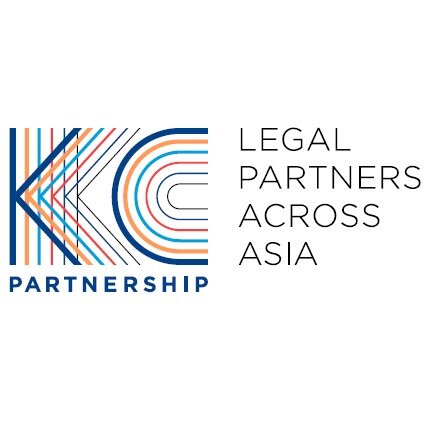Best Nonprofit & Charitable Organizations Lawyers in Harbourfront
Share your needs with us, get contacted by law firms.
Free. Takes 2 min.
List of the best lawyers in Harbourfront, Singapore
About Nonprofit & Charitable Organizations Law in Harbourfront, Singapore
Nonprofit and charitable organizations in Harbourfront, Singapore operate under a specific legal framework designed to facilitate philanthropic activities while ensuring accountability and compliance with national regulations. This area of law covers a range of entities, including charities, societies, and other entities established with social, educational, environmental, cultural, or religious purposes. These organizations are vital to community development and often involve complex legal considerations regarding governance, funding, and operations.
Why You May Need a Lawyer
Establishing or managing a nonprofit or charitable organization often entails navigating complex legal requirements. Common situations where legal help might be required include:
- Setting up the organization: Legal assistance is often needed to ensure the entity is correctly registered and complies with the legal mandates.
- Compliance and reporting: Ensuring timely submission of required documentation to the relevant authorities to maintain compliance with regulatory standards.
- Tax exemptions and benefits: Legal advice is essential to understand eligibility for tax breaks and how to apply for them.
- Contract drafting and negotiation: Involves agreements with donors, sponsors, and other stakeholders.
- Dispute resolution: Legal intervention may be necessary if disputes arise within the organization or with external parties.
- Employment and labor laws: Legal guidance helps in navigating employment-related issues within the nonprofit sector.
Local Laws Overview
The legal framework governing nonprofit and charitable organizations in Harbourfront, Singapore, is primarily based on the following key aspects:
- Charities Act: This act sets out the legal obligations for charitable organizations, including registration with the Commissioner of Charities, governance standards, and financial reporting requirements.
- Societies Act: Aims to regulate the formation and operation of societies, requiring them to register and report their activities.
- Income Tax Act: Governs the tax exemptions available to registered charities and the criteria for qualifying as an Institution of a Public Character (IPC).
- Personal Data Protection Act (PDPA): Nonprofits must comply with data protection obligations when handling personal data.
Frequently Asked Questions
1. What is the process for registering a charity in Singapore?
Organizations must apply to the Commissioner of Charities. The process includes submitting the organization's governing documents, proposed activities, financial projections, and demonstrating a charitable purpose.
2. Are there tax benefits for donors to charities?
Yes, donations to registered charities with IPC status are eligible for tax deductions, subject to certain conditions.
3. Can foreign charities operate in Singapore?
Yes, but they must comply with local registration requirements and regulations, similar to local entities.
4. What are the reporting obligations for charities in Singapore?
Charities must submit annual reports, financial statements, and other documents as required by the Charities Act.
5. What is an Institution of a Public Character (IPC)?
An IPC status allows an organization to issue tax-deductible receipts to donors, providing an incentive for public contributions.
6. Do nonprofit organizations need to register as societies?
Not necessarily. It depends on their structure and activities. Some might register as companies limited by guarantee or under the Charities Act instead.
7. Can a charity engage in business activities?
Yes, provided the activities are directly related to the charity's purposes or if the profits are used solely for its charitable objectives.
8. How does the Personal Data Protection Act (PDPA) impact charities?
Charities must protect personal data they collect, ensuring compliance with PDPA guidelines for data processing and storage.
9. Are there restrictions on political activities by charities?
Yes, charities are generally not allowed to engage in political activities, especially those that promote a political cause or candidate.
10. How can founders protect themselves from liability in a nonprofit?
Choosing the appropriate legal structure, such as a company limited by guarantee, and having robust governance policies can help minimize personal liability.
Additional Resources
- Commissioner of Charities
- Ministry of Culture, Community, and Youth (MCCY)
- Charity Council
- Law Society of Singapore
- National Volunteer & Philanthropy Centre (NVPC)
Next Steps
If you require legal assistance in the nonprofit and charitable sector, consider reaching out to specialized law firms or community legal clinics that focus on this field. Ensure you gather all pertinent documents and information about your organization before meeting with a legal advisor to facilitate a productive consultation.
Lawzana helps you find the best lawyers and law firms in Harbourfront through a curated and pre-screened list of qualified legal professionals. Our platform offers rankings and detailed profiles of attorneys and law firms, allowing you to compare based on practice areas, including Nonprofit & Charitable Organizations, experience, and client feedback.
Each profile includes a description of the firm's areas of practice, client reviews, team members and partners, year of establishment, spoken languages, office locations, contact information, social media presence, and any published articles or resources. Most firms on our platform speak English and are experienced in both local and international legal matters.
Get a quote from top-rated law firms in Harbourfront, Singapore — quickly, securely, and without unnecessary hassle.
Disclaimer:
The information provided on this page is for general informational purposes only and does not constitute legal advice. While we strive to ensure the accuracy and relevance of the content, legal information may change over time, and interpretations of the law can vary. You should always consult with a qualified legal professional for advice specific to your situation.
We disclaim all liability for actions taken or not taken based on the content of this page. If you believe any information is incorrect or outdated, please contact us, and we will review and update it where appropriate.








